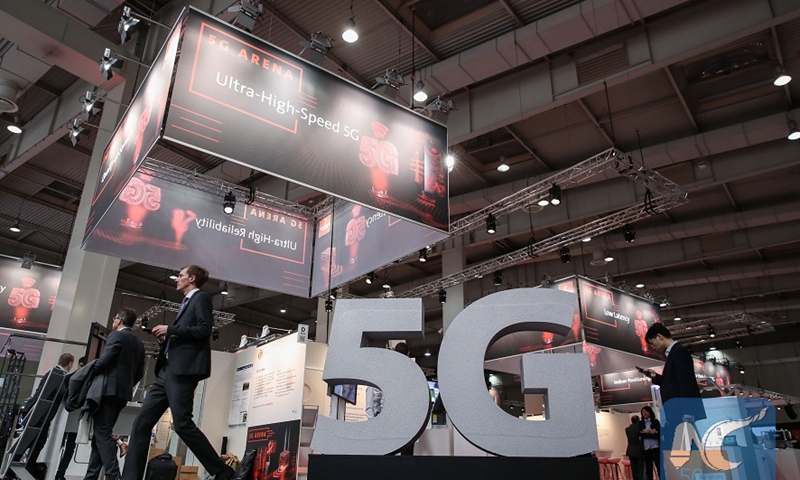SOURCE / MARKETS
Hubei to invest $28m in 5G base stations to power digital consumption

Visitors are seen at the 5G Arena during the 2019 Hanover Fair in Hanover, Germany, April 1, 2019.Photo:Xinhua
In order to boost consumption and revive the economic growth of virus-hit Hubei Province, the provincial government introduced 30 measures, including allocating 200 million yuan ($28.02 million) to subsidize 5G base stations building to push forward digital consumption.
In the notice released on Friday, the province vowed to facilitate the building of 5G base stations, ramping up efforts to reach the goal of completing the construction of 50,000 5G base stations by 2021.
"We will allocate 200 million yuan, with the proportion of 1:2:2 going to the provincial level, city level and county level, to subsidize the 5G macro base stations for three consecutive years. Special governmental bonds will also be issued to support the building of 5G base stations," the notice said.
5G technology, as a key element of China's new infrastructure initiative, plays a vital role in making the economy and society digitalized.
While the specific value for 5G infrastructure projects this year remains elusive, total investments could reach 1.2 trillion yuan by 2025, a report by the China Academy of Information and Communications Technology said, noting that 5G investment could prompt an additional investment of 3.5 trillion in other related sectors.
For Hubei, the motivation to develop 5G is more urgent than other parts of China, as the economy of the province contracted by 39.2 percent in the first quarter of this year after its capital, Wuhan, went through a 76-day lockdown to save lives and prevent the pandemic from spreading further across the country.
In 2019, the total retail sales of consumer goods in Hubei exceeded 2 trillion yuan, but the coronavirus outbreak hit heavily on the province's consumption, especially in hotels, catering, tourism and auto sales, according to the Xinhua News Agency.
The 30 measures included holding a shopping festival in June, stimulating entertainment and food consumption at night and facilitating the opening of tax-free shopping malls within the province.
Meanwhile, new energy vehicle and rural auto buyers will receive subsidies. The cultural and tourism department of Hubei will also return 80 percent of the tourism quality deposit to travel agencies.
Global Times
